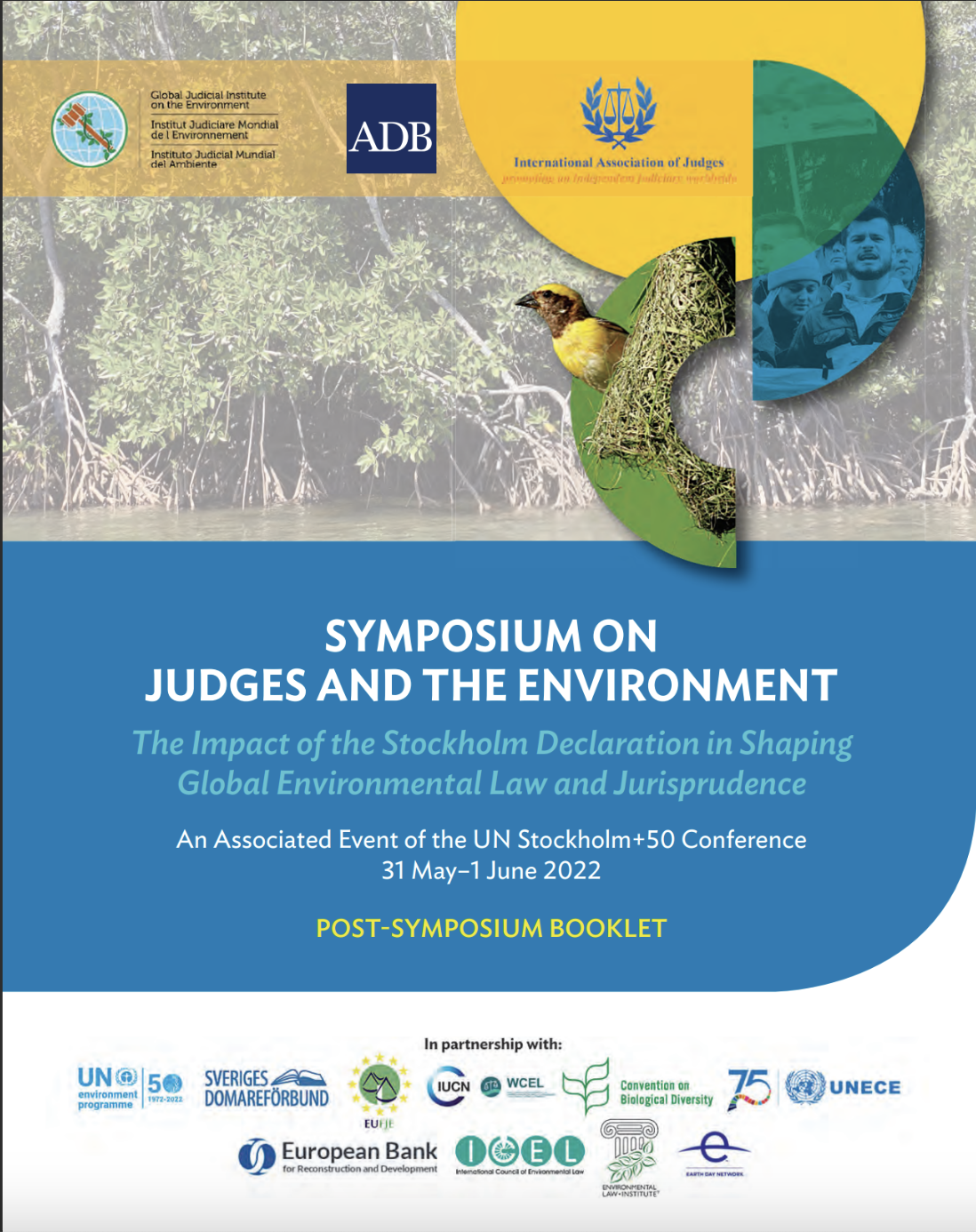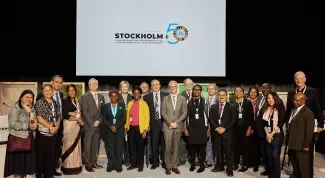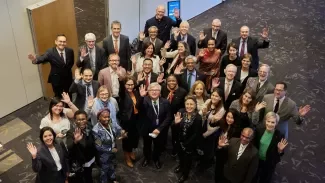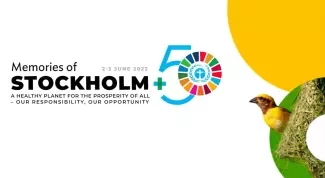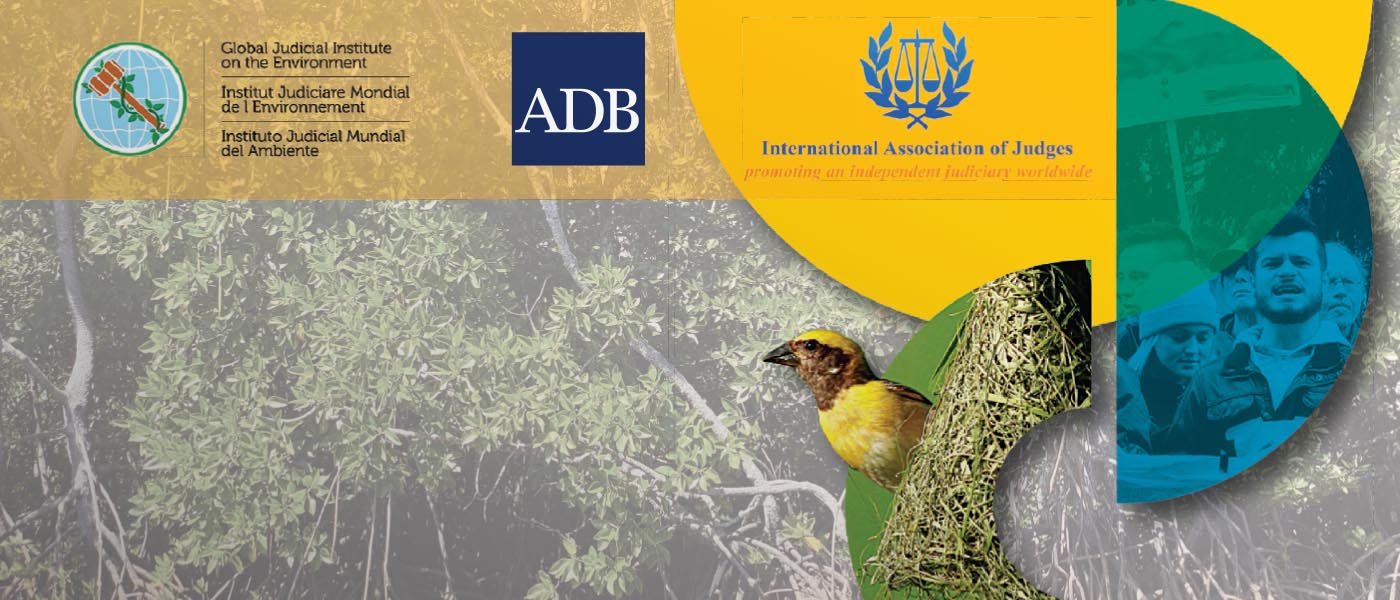
Symposium on Judges and the Environment: The Impact of the Stockholm Declaration in Shaping Global Environmental Law and Jurisprudence
The two-day symposium was an associated event of the United Nations Stockholm+50 Conference, commemorating the 50th anniversary of the original United Nations Conference on the Human Environment in 1972. Supreme Court Justices and senior judges gathered in Stockholm to reflect on how the Stockholm Declaration has shaped and continues to influence current law and legal thinking.
The symposium revolved around three main themes related to the role of the judiciary in the implementation of the environmental rule of law: first, the critical role of judges in incorporating international environmental law, treaties, and declarations into national and subnational law; second, in the context of environmental justice, the strengthening of judicial independence and integrity as absolute prerequisites for the environmental rule of law; and third, the challenge of judicial education in the field of environmental law.
Welcome and Opening Remarks
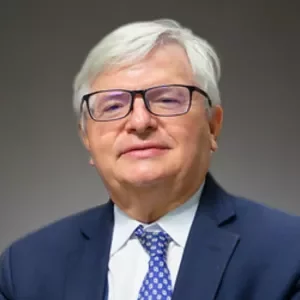
Justice Antonio Herman Benjamin
President of the National High Court of Brazil (STJ); President of the Global Judicial Institute on the Environment (GJIE); and Chair Emeritus, International Union for the Conservation of Nature (IUCN) World Commission on Environmental Law (WCEL)
Justice Benjamin reflected on the immense power entrusted to judges, who are responsible for making decisions about life, laws, and human rights. Environmental rule of law is an integral part of the rule of law, and judges must be mindful of this when making decisions. He highlighted the pillars that judges must adhere to in their work: independence, integrity, knowledge, respect for human dignity, and impartiality. With this, he welcomed everyone to the two-day journey ahead.

Judge Hannah Werth
President, Swedish Judges Association
Judge Hannah Werth, President of the Swedish Association of Judges, welcomed guests from around the world to the symposium. Drawing on the work of Prof. Staffan Westerlund, Sweden's first Professor of Environmental Law, Judge Werth highlighted the importance of the law in achieving a clean and healthy environment and the goal of sustainability. She discussed how law is created, interpreted, applied, and enforced. Judge Werth stressed the crucial role of justice in achieving these goals, with judges and courts as key actors in a global context. The Stockholm Conference, which celebrated its 50th anniversary at the time of the symposium, is a starting point for much of the global cooperation and development of environmental law.
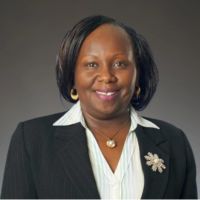
Patricia Kameri-Mbote
Director, United Nations Environment Program (UNEP) Law Division; Professor, University of Nairobi
Patricia Kameri-Mbote highlighted the considerable advancements in environmental law since the 1972 Stockholm Conference. However, she also acknowledged the persistent challenges in implementing and enforcing environmental law. Ms. Kameri-Mbote emphasized the importance of renewed legal imagination and global action, calling for collective efforts to ensure a sustainable future. Looking ahead to future milestones such as Stockholm+100, she encouraged participants to prioritize environmental rule of law and work towards a successful outcome for both people and the planet.
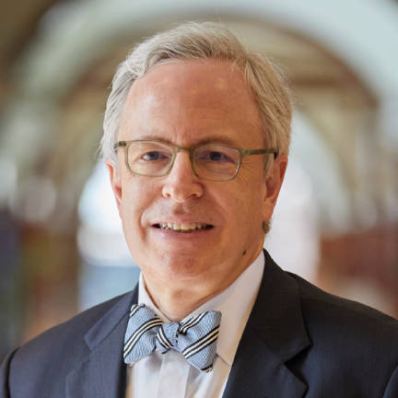
Thomas M. Clark
General Counsel, Asian Development Bank (ADB)
Thomas Clark welcomed attendees to the Symposium on Judges and the Environment. He emphasized the collaborative effort among various organizations and highlighted the critical role of judges in addressing the global environmental crisis. Mr. Clark stressed the need for 21st century legal solutions and underscored the Asian Development Bank's commitment to supporting judiciaries and promoting judicial education for effective environmental governance. He cited examples of courts in the Asia-Pacific region that have used the Stockholm Declaration in their environmental jurisprudence and emphasized the importance of judicial integrity and judicial education in ensuring consistent and informed decision-making.
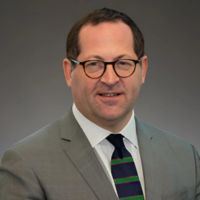
Michael Strauss
General Counsel, European Bank for Reconstruction and Development (EBRD)
Michael Strauss emphasized the commitment of the European Bank for Reconstruction and Development (EBRD) to sustainable development and environmentally sound investments. He stressed the urgency of tackling climate change, which is, in many ways, a matter of justice. Mr. Strauss highlighted the role of courts in settling environmental issues and the significance of building judicial capacity. Therefore, the EBRD is working to develop training programs for judges on environmental and climate law to assist national legal systems in addressing these critical issues.
Symposium Introduction by the Academic Coordinators
Affiliations and positions indicated are as of symposium date (31 May-1 June 2022).
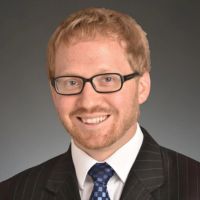
Nicholas Bryner
Professor, Louisiana State University School of Law
Professor Nicholas Bryner addressed the “what” and the “why” of the symposium. He outlined the topics that would be covered over the next two days. Participants would hear from 30 judges from 24 countries on the subjects of judicial independence and integrity, environmental matters, and the role of judges in advancing justice and environmental rule of law. He discussed the motivation behind the symposium and stressed the significance of gathering, discussing, and exchanging ideas regarding the judicial implementation of environmental rule of law.

Denise Antolini
Professor, William S. Richardson School of Law, University of Hawai’i
Professor Denise Antolini addressed the “who” and “how” of the symposium. She acknowledged the Global Judicial Institute on the Environment for spearheading the event and the Asian Development Bank team for assisting GJIE in organizing it. She likened the symposium to a symphonic assembly, with each participant playing an instrument.
Opening Keynotes: Stockholm+50—Reflections about the Past, Present, and Future
Affiliations and positions indicated are as of conference date (31 May-1 June 2022).
The opening keynotes addressed the progress made and the gaps that have emerged since the 1972 Stockholm Conference. From seemingly opposite perspectives—the glass half empty and half full—the speakers, nevertheless, agreed that there is still hope to achieve the future we want for our planet.

Co-Chair: Justice Ragnhild Noer
Supreme Court of Norway

Co-Chair: Christina Pak
Principal Counsel and Team Leader, Law and Policy Reform Program, Office of the General Counsel, Asian Development Bank (ADB)
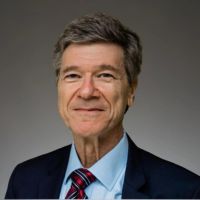
Jeffrey Sachs
Professor and Director of the Center for Sustainable Development, Columbia University; President, UN Sustainable Development Solutions Network
Judges and Sustainable Development
Professor Jeffrey Sachs analyzed the Stockholm Declaration of 1972 alongside the book Limits to Growth, which was also published that year. After grappling with a critique of the book, he considered how it portrayed the planet's dynamics over the past 50 years. He expressed regret that despite numerous conferences since the Stockholm Declaration, none of them were able to fundamentally change the self-destructive trajectory of human activity. He noted that the law appears to be double-edged in all of these crises. He emphasized that we depend on judges in this respect, making the symposium extremely timely.
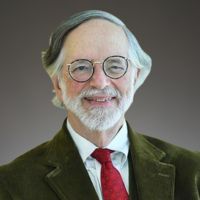
Nicholas Robinson
Professor, Pace Law School; President, International Council of Environmental Law (ICEL); Chair Emeritus, International Union for Conservation of Nature (IUCN) World Commission on Environmental Law
Environmental Law—Achievements and Gaps Since the 1972 Stockholm Declaration
Professor Nicholas Robinson based his presentation on the metaphor of a glass that is half-full. He posited that over the past 50 years, we have filled the glass of law and courtrooms with some extraordinary new developments in the recognition of a fundamental right to the environment. Professor Robinson contextualized the events of 1972 and analyzed the progress made over the past five decades. Referring to 'the audacity of hope,' he urged everyone to use their moment in history to help improve the lives of all species.
Panel Session 1: Emerging Trends in Environmental Law
Affiliations and positions indicated are as of symposium date (31 May-1 June 2022).
The panel discussed recent trends that are emerging in environmental law. The Swedish system is based on broad participation, allowing any interested party to be heard. The panel also discussed the intergenerational approach to fundamental rights, emphasizing principles such as temporal non-discrimination and the dignity of future generations.
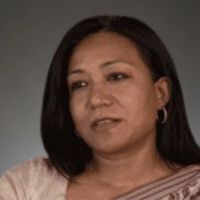
Co-Chair: Justice Sapana Pradhan Malla
Supreme Court of Nepal; Secretary-General, Global Judicial Institute on the Environment (GJIE)
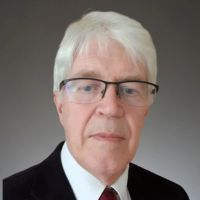
Co-Chair: Judge Anders Bengtsson
Former Senior Judge, Land and Environment Court, Växjö, Sweden

Emilie Gaillard
Lecturer in Environmental and Human Rights Law, Sciences Po Rennes
Towards a Transgenerational Implementation of Fundamental Environmental Rights and Duties
Professor Emilie Gaillard advocated for a transgenerational approach to fundamental rights, emphasizing principles such as temporal non-discrimination and the dignity of future generations. She called for a shift in legal and political frameworks to address contemporary challenges, including nuclear contamination and technological advancements. Professor Gaillard discussed ongoing efforts to integrate this approach into legal systems. She cited examples from Germany and France, and expressed openness to further discussion and development in this area.
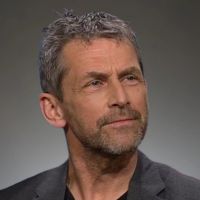
Jonas Ebbesson
Professor and former Dean, University of Stockholm Law School
The Swedish Environmental Law Model—A Panorama and Lessons Learned
Professor Jonas Ebbesson contextualized the symposium theme within the Swedish model and highlighted a unique feature of Stockholm University's law program: all mandatory courses include an environmental law component. Professor Ebbesson also addressed the role of the judiciary, with recent developments confirming its importance. Referring to the Aarhus Convention, he discussed the Swedish system, which relies on broad participation.
Morning Session Closing Keynote Addresses
Affiliations and positions indicated are as of symposium date (31 May-1 June 2022).
The closing keynotes of the first day of the symposium focused on the priorities and challenges that have emerged in the last 50 years following the Stockholm Declaration. They emphasized the urgent need for decisive action based on scientific evidence and the central role of law in driving systemic change. It also focused on efforts to establish ecocide as an international crime.
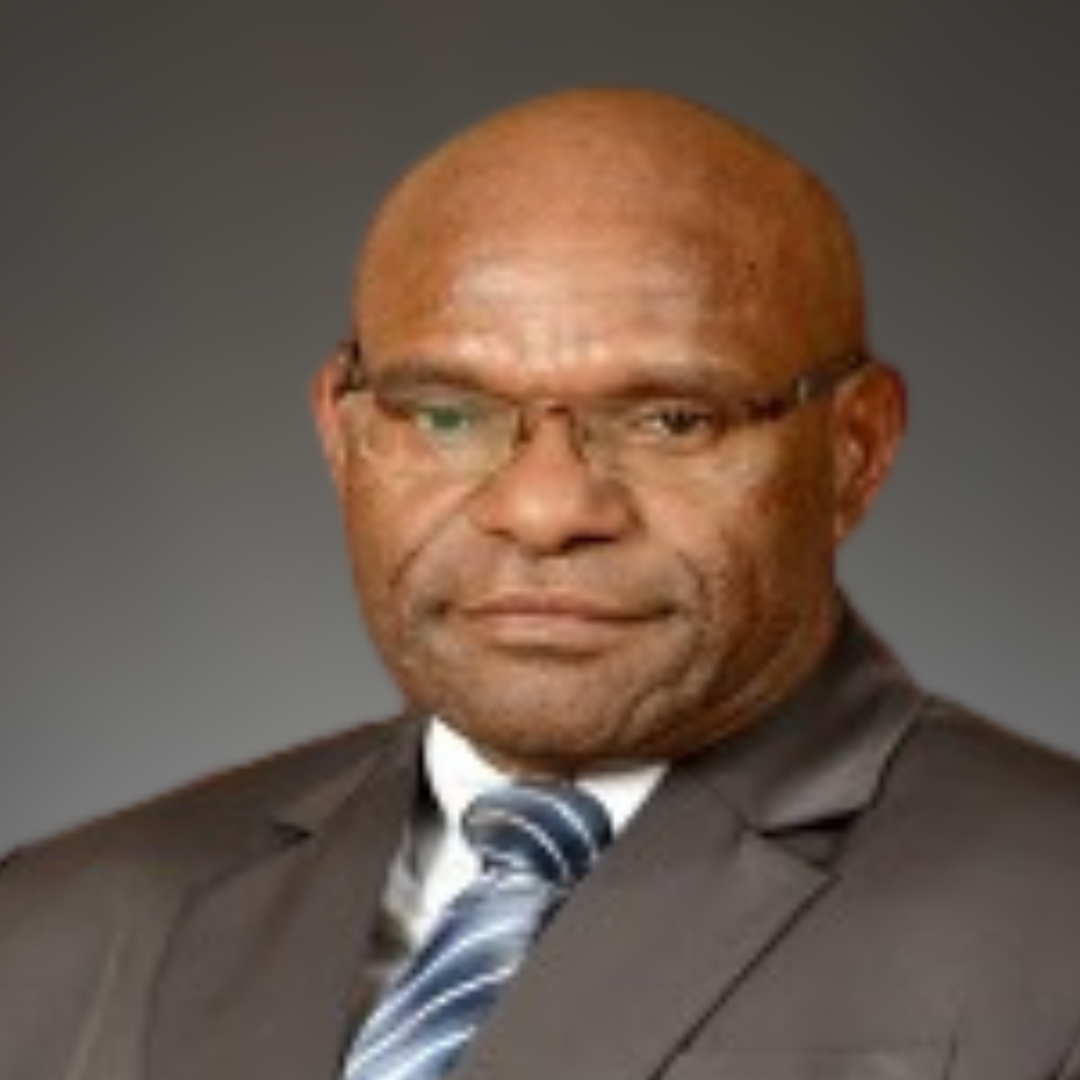
Chair: Justice Ambeng Kandakasi
Deputy Chief Justice, Supreme Court of Papua New Guinea

Cristina Voigt
Professor, University of Oslo, Department of Public and International Law; Chair, International Union for Conservation of Nature (IUCN) World Commission on Environmental Law
Environmental Law Priorities and Challenges after Stockholm +50
Professor Voigt provided a retrospective on the 50 years following the Stockholm Declaration. She highlighted the increasing number of environmental agreements and legislation, as well as the establishment of environmental courts worldwide. However, despite these legal advancements, environmental quality has not significantly improved. This is evidenced by ongoing climate change, biodiversity loss, and pollution. She emphasized the urgent need for strong government interventions based on scientific evidence and the pivotal role of law in driving systemic change. Professor Voigt also talked about current international treaty negotiations aimed at addressing various environmental challenges, emphasizing the significance of global cooperation and legal frameworks for enforcing environmental protection measures.
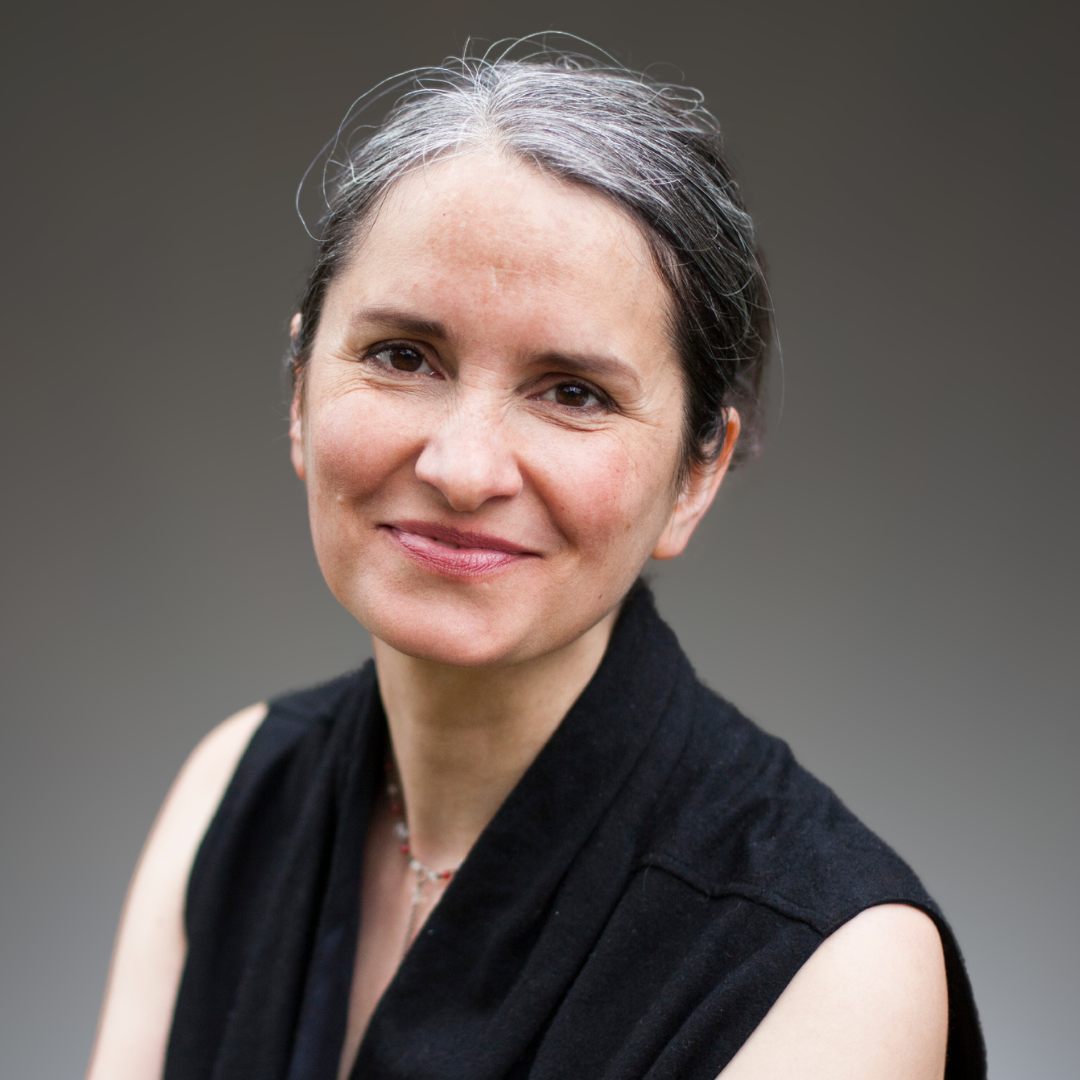
Jojo Mehta
Co-founder and Executive Director of Stop Ecocide International
The Establishment of Ecocide as an International Crime
Ms. Jojo Mehta, an advocate with a background in activism and law, underscored the urgent need to criminalize ecocide, alongside genocide and war crimes. She co-founded Stop Ecocide International to push for this cause, focusing on the failure of governments to address environmental destruction despite decades of existing environmental laws. Ms. Mehta argued that the Western perspective of nature as a resource has resulted in extensive damage. Therefore, legal frameworks need to be altered to acknowledge the significance of healthy ecosystems for human survival. She proposed the recognition of ecocide as an international crime. She cited growing pressure from diverse voices and recent milestones in the legal definition of ecocide. Ms. Mehta highlighted the importance of using judicial roles to support a global conversation and take action to protect the future of humanity and the planet.
Panel Discussion on the Morning Session Closing Keynote Addresses
The panel discussed the effectiveness of laws in countries where existing laws are not implemented. Justice Syed Mansoor Ali Shah of the Supreme Court of Pakistan raised questions about whether laws alone could solve issues such as environmental degradation and climate change adaptation. He also highlighted the challenges in implementing laws that criminalize environmental violations.
Panel Session 2: Emerging Environmental Law Principles Since the Stockholm Declaration
The panel session tackled environmental law principles that have developed over the past 50 years. These include the shift in the understanding of the environment from individual rights to collective good, the recognition of the rights of nature, and the right to a healthy environment.
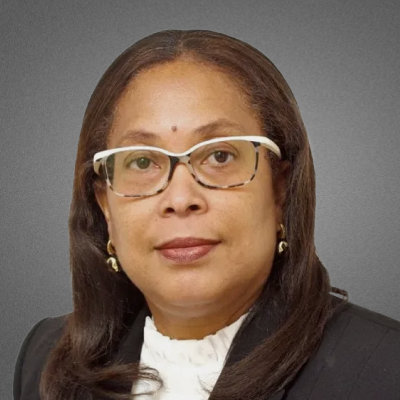
Co-Chair: Justice Michelle Weekes
High Court of Barbados
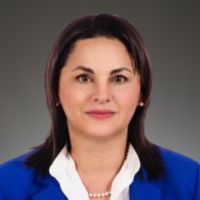
Co-Chair: Justice Damaris María Vargas Vásquez
Supreme Court of Costa Rica
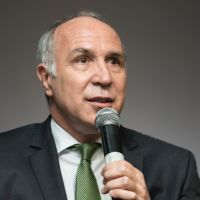
Justice Ricardo Lorenzetti
Supreme Court of Argentina
Justice Ricardo Lorenzetti highlighted the transformative impact of the Stockholm Declaration on global environmental law over the past 50 years. He underlined a shift in the understanding of the environment from individual rights to a paradigm based on a collective good. This evolution requires a nuanced approach that recognizes the interdependence of rights and duties in safeguarding collective goods. Justice Lorenzetti emphasized the importance of taking preventive measures, providing restitution, and offering compensation in a specific sequence. Additionally, he highlighted the need for a polycentric approach to resolving environmental conflicts and underscored the judiciary's role in implementing sustainable development solutions.
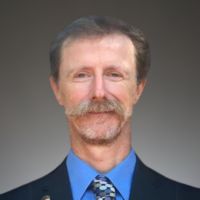
David Boyd
United Nations (UN) Rapporteur for Human Rights and the Environment (Former); Professor, University of British Columbia
Professor David Boyd reflected on the profound impact of the 1972 Stockholm Declaration on environmental, human rights and constitutional law. He emphasized the evolution of principles that originated from the declaration, such as prevention, precaution, the polluter pays principle, and the planetary boundaries principle. These principles are now widely integrated into global legal frameworks. Professor Boyd also emphasized the connection between human rights and environmental law, citing the emergence of principles such as non-regression, sustainable development, and the rights of future generations. He underscored the crucial role of the rights of nature and the right to a healthy environment in addressing the current global environmental crisis. He advocated for their effective implementation through legislation, regulations, and judicial actions.

Justice Antonio Herman Benjamin
President of the National High Court of Brazil (STJ); President of the Global Judicial Institute on the Environment (GJIE); and Chair Emeritus, International Union for the Conservation of Nature (IUCN) World Commission on Environmental Law (WCEL)
Justice Herman Antonio Benjamin emphasized the importance of the Stockholm Declaration for judges, highlighting its role in placing the environment at the center of the legal system. He stressed judges' responsibility in implementing environmental laws, balancing rights and duties, and adopting a planetary perspective. Justice Benjamin also discussed the blurring lines between international and national law in environmental cases. He cautioned against hasty judgments of environmental law's effectiveness and acknowledged its significant impact on the legal system. He emphasized the need for ongoing improvement.
Panel Discussion
During the panel discussion, Justice Syed Mansoor Ali Shah posed a question about the extent and limits of judicial intervention in environmental governance. Mr. Thomas Clark sought actionable guidance for judges who may have varying legal mandates on environmental issues, particularly in the context of negative political situations in some regions. Professor Christina Voigt asked about the effectiveness of the United Nations resolutions regarding environmental rights, while Justice Sapana Malla pointed out the difficulties in enforcing judgments against powerful entities. Professor Jim May inquired about the role of judges in defining adjectives like 'healthy,' 'sustainable,' 'clean,' and 'safe' in legislation. Lastly, Justice Karen Zarikyan asked about the effects of constitutional changes on environmental rights.
Panel Session 3: Climate Change and Courts—A Global Dialogue
Affiliations and positions indicated are as of symposium date (31 May-1 June 2022).
The panel session focused on climate litigation and the resulting climate change jurisprudence. Citing examples from Australia, France, Pakistan, the United States (particularly Hawai'i), and the People's Republic of China (PRC), the session explored government and corporate accountability and the use of litigation to address government inertia. Finally, the session also featured a series of ADB reports on climate change, climate litigation, and related legal and policy frameworks.

Co-Chair: Andrea Marcela Brusco
UNEP Environmental Governance Regional Coordinator, Panama City
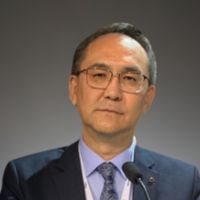
Co-Chair: Justice Beibut Shermukhametov
Supreme Court of Kazakhstan
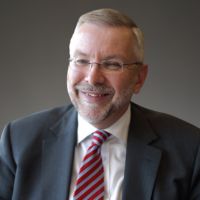
Justice Brian Preston
Chief Justice, Land and Environment Court, New South Wales, Australia
Justice Brian Preston emphasized the underlying causes of the climate crisis and the importance of climate litigation in holding governments and corporations accountable for their inadequate action or inaction. He provided examples from around the world to illustrate the various types of litigation that target government and corporate accountability. The judiciary plays a crucial role in facilitating effective measures to combat climate change by enforcing laws and upholding the rule of law.

Justice Fabien Raynaud
Conseil d’État, France
Justice Fabien Raynaud discussed the increasing significance of the issue of justice and climate change in recent years. This is exemplified by the Grande-Synthe case in France, where a municipality challenged the government's inaction on greenhouse gas emissions reduction before the Conseil d’Etat. Justice Raynaud highlighted several significant points in the case that could be replicated by signatories to the Paris Agreement. He emphasized the importance of national judges in upholding the commitments outlined in the Paris Agreement.
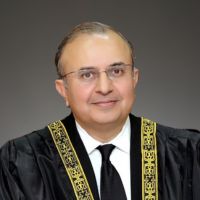
Justice Syed Mansoor Ali Shah
Supreme Court of Pakistan
Justice Syed Mansoor Ali Shah emphasized the timeless relevance of the principles outlined in the Stockholm Declaration and stressed the urgency of addressing climate change. He highlighted the judiciary's role in combating government inertia through climate litigation, citing examples from Pakistan's legal landscape. Justice Shah advocated for advancing from environmental to climate justice and urged judges to adopt a multidisciplinary approach while upholding the dignity of nature. He proposed transitioning from an anthropocentric to a biocentric approach, emphasizing intergenerational justice and planetary protection. He also called for global judicial collaboration and proactive action to tackle the challenges ahead.
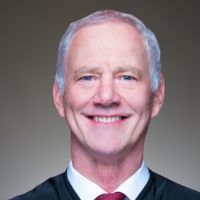
Justice Michael Wilson
Supreme Court of Hawaii
Justice Michael Wilson shared a perspective from Hawai'i, emphasizing the imminent threat of climate change. He proposed a duty to provide remedies for this crisis, suggesting a two-part framework for judges involving legal development and emergency response. Drawing parallels with the coronavirus disease (COVID-19) pandemic and other historical events, he underscored the urgency of the climate emergency, urging bold judicial action using the rule of law as a solution. Justice Wilson advocated for judicial intervention in response to the climate emergency, emphasizing the need for restorative action beyond mere declarations of violation. He highlighted recent progress in Hawai’i towards recognizing citizens' rights to a stable climate. In conclusion, Wilson urged a shift towards practical solutions and thanked the Global Judicial Union for the Environment and the Asian Development Bank (ADB) for their support in empowering judges to address this pressing global issue.
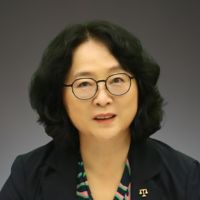
Judge Liu Zhumei
Chief Judge, Environment and Resources Division, Supreme People’s Court, People’s Republic of China
Judge Liu Zhumei emphasized China's proactive role in global environmental protection, citing the nation's commitment to the Stockholm Declaration and Global Development Initiative proposed before the United Nations. She also discussed the establishment of specialized environmental courts and the integration of technology for efficient adjudication. She highlighted the PRC’s strict implementation of environmental laws, which includes incorporating ecological principles into the Civil Code. She emphasized the use of preventive public interest litigation, restorative justice, and international cooperation to address climate change through innovative adjudication measures.

Maria Cecilia T. Sicangco
Senior Legal Officer, ADB
Ms. Maria Cecilia Sicangco discussed ADB’s four-part report series titled Climate Change, Coming Soon To A Court Near You. The reports illustrate the impact of climate change in Asia and the Pacific, which differs slightly from the rest of the world. The four reports cover: (i) climate science, (ii) climate litigation, (iii) climate legal and policy frameworks in Asia and the Pacific, and (iv) the Paris Agreement and the framework of international instruments and legal principles that support global and domestic climate action. Ms. Sicangco highlighted significant cases that illustrate how international legal principles are applied in domestic litigation and how a "climate lens" have impacted case decisions from Asia and the Pacific since the report series was released.
Panel Discussion
A virtual participant asked about engaging courts, including those in the United States, in climate issues. This underscored the growing momentum through organized efforts and amicus briefs. Questions were also raised about state courts' sovereign jurisdiction in recognizing rights to clean air and water, the dignity of nature in advancing environmental jurisprudence, and its fundamental role in human rights jurisprudence. Furthermore, the conversation explored the impact of the exchange of ideas through institutions such as the Global Judicial Institute on the Environment in venues such as this symposium.
Concluding Session of Day 1
Affiliations and positions indicated are as of symposium date (31 May-1 June 2022).
Ms. Inger Andersen, Secretary-General of the Stockholm+50 International Meeting and Executive Director of the United Nations Environment Programme (UNEP), spoke about the origins of the Stockholm Conference and the challenges and prospects that have emerged during the fifty-year journey on environment, development and poverty.
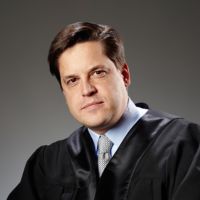
Chair: Justice Alfredo Gutiérrez Ortiz Mena
Supreme Court of Mexico
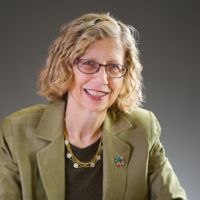
Inger Andersen
Secretary-General, Stockholm+50 International Meeting; Executive Director, United Nations Environmental Program (UNEP)
UNEP+50—Challenges and Prospects
Ms. Inger Andersen emphasized the origins of the Stockholm Conference, which paved the way for a fifty-year journey to address the interconnection of environment, development, and poverty. Despite significant progress in environmental legislation over the decades, she highlighted the challenge of effectively implementing and enforcing these laws to address the triple planetary crisis of climate change, biodiversity loss, and pollution. Ms. Andersen underscored the need for stronger integration of science in policy-making and stressed the importance of environmental rule of law in securing a sustainable future and ensuring intergenerational justice. She also highlighted the crucial role of judges and the need for legal innovation to tackle complex environmental challenges effectively. Additionally, she emphasized the importance of including diverse voices in global treaty deliberations.
Panel Session 4: Official Launch of the Global Judicial Environmental Portal
Affiliations and positions indicated are as of symposium date (31 May-1 June 2022).
The panel session launched the Global Judicial Portal on the Environment, a platform for judges to access a database of case law, judicial networking, and learning resources. The panel also discussed the key features of the portal and the rationale for sharing environmental law jurisprudence, namely international cooperation, inspiration from solutions in different countries, and promotion of significant cases.
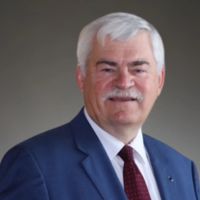
Co-Chair: Justice Luc Lavrysen
President, Constitutional Court of Belgium; Chair, European Union Forum of Judges for the Environment
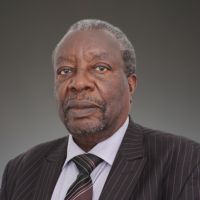
Co-Chair: Donald Kaniaru
ICEL and Former Director of UNEP Law Division

Justice Antonio Herman Benjamin
President of the National High Court of Brazil (STJ); President of the Global Judicial Institute on the Environment (GJIE); and Chair Emeritus, International Union for the Conservation of Nature (IUCN) World Commission on Environmental Law (WCEL)
Justice Antonio Herman Benjamin recounted the establishment of the Global Judicial Institute on the Environment (GJIE) in 2016. He highlighted the decision to create a judicial portal by judges and for judges, given the importance of preserving the independence of judges in terms of both how they see themselves and how others perceive them. He noted the partnership with the UNEP, led by himself, Justice Luc Lavrysen, and Judge Marc Clément. This culminated in the symposium's official launch of the fully operational Global Judicial Portal. Justice Benjamin emphasized the portal's importance in providing judges with knowledge, communication tools, and a secure platform to address concrete issues and cases. The portal serves as a valuable resource for judges seeking information and support.

Eva Duer
Legal Officer and Team Leader, Collective Intelligence for Environmental Governance, UNEP INFORMEA, Geneva
During the presentation, Ms. Eva Duer and Mr. Peter Speelman discussed the Global Judicial Portal. Ms. Duer explained the portal's development milestones, starting with GJIE's partnership with UNEP in 2018 and the subsequent creation of a prototype. She emphasized the portal's independence and its value for collecting jurisprudence and building capacity. Since the first beta version was released, the portal has generated significant interest. Over 50,000 people have accessed the portal online, many of whom found it useful. Ms. Duer concluded with a demonstration of the portal's features, including e-learning courses for the judiciary and a glossary linked to related treaties.
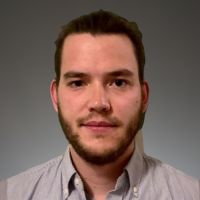
Peter Speelman
Associate Legal Officer, Collective Intelligence for Environmental Governance, UNEP INFORMEA, Geneva
Mr. Peter Speelman highlighted the key features of the Global Judicial Portal. He emphasized that the portal's backbone component, Jurisprudence, sets it apart from other portals that focus on legislation and treaties. Additionally, the portal includes a Judicial Network, which is exclusively for GJIE members and judges to network and discuss. The Judicial Network consists of a Members Directory section and a Discussions section. Finally, Resources is a library of information that includes e-learning, training materials, reports, partners, universities, and legislation.

Judge Marc Clément
Presiding Judge, Administrative Court of Lyon, France
Judge Marc Clément highlighted three primary reasons for judges to share case law in environmental law: international cooperation, inspiration from solutions in different countries, and promotion of significant cases through the Judicial Portal. He urged Supreme Courts worldwide to contribute to the Portal for the benefit of judges globally.
Panel Discussion
During the panel discussion, participants raised questions about accessing judgments in different languages on the Judicial Portal and the challenges that may arise. They also inquired about non-judges or non-lawyers accessing the portal for research purposes. Justice Benjamin clarified that while the portal aims to provide access to researchers and subject matter experts, its primary audience remains judges. Additionally, questions were raised about the relationship between the Judicial Portal and established legal research databases. This helped clarify the portal's open-source nature and potential for future collaborations.
Panel Session 5: Theory and Practice of the Environmental Rule of Law with Special Emphasis on Independence, Integrity and the Use of Technology in the Judiciary
Affiliations and positions indicated are as of symposium date (31 May-1 June 2022).
Using examples from Thailand, Armenia, Kenya, and Brazil, the session focused on the theory and practice of environmental rule of law. Speakers highlighted the improvement of environmental justice through the establishment of green benches, the importance of independence and impartiality when dealing with complex environmental issues in the face of public and political pressure, the gaps between theory and practice, and the use of technology in combating illegal logging and deforestation.

Co-Chair: Vesselina Haralampieva
Senior Counsel, European Bank for Reconstruction and Development (EBRD)

Co-Chair: Carl Bruch
Environmental Law Institute (ELI)
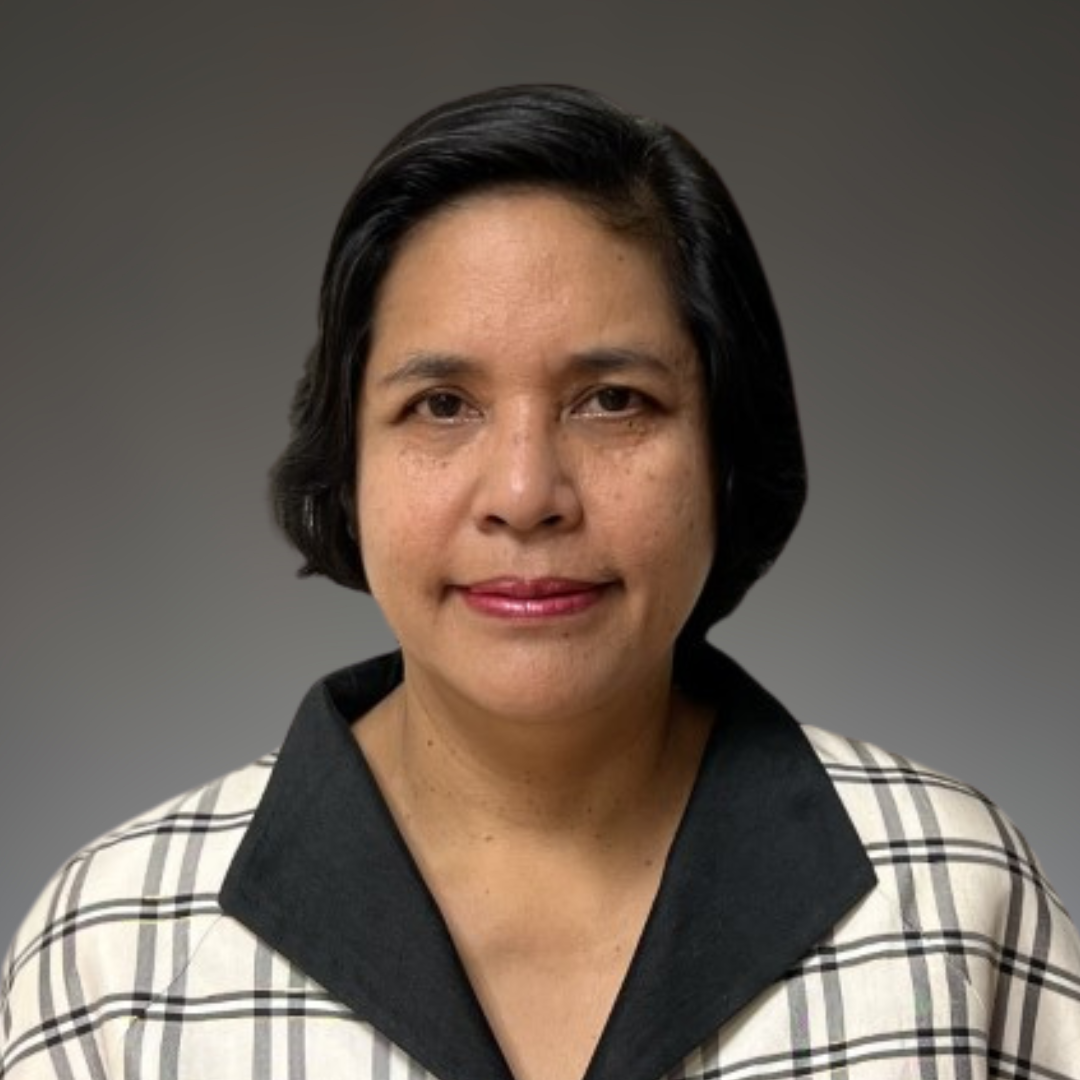
Justice Suntariya Muanpawong
Vice Chief Justice, Court of Justice of Region 5, Thailand
Justice Suntariya Muanpawong spoke about Thailand's environmental challenges resulting from industrialization and the need for equitable distribution of resources. Despite strong environmental laws, pollution persists, disproportionately affecting vulnerable groups such as minorities and indigenous people. Judicial reforms, including the establishment of green benches and educational programs, aim to improve environmental justice. She also argued that environmental justice necessitates addressing social disparities, recognizing environmental ethics, and adopting an interdisciplinary approach.
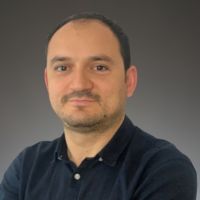
Justice Karen Zarikyan
Administrative Court of the Republic of Armenia
Justice Karen Zarikyan emphasized the crucial role of judges in environmental law, asserting their power to transform legislative texts into effective laws through interpretation and implementation. While politicians initially shape environmental policies, court decisions can have a significant impact, ensuring adherence to legal standards and human rights. Judges, driven by independence and impartiality, navigate complex environmental issues despite potential public and political pressures. However, addressing environmental challenges effectively requires judges to possess not only legal expertise but also a broader understanding of environmental science and global implications. This entails specialized training and regular knowledge-sharing forums.
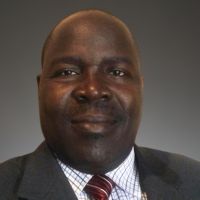
Justice Samson Odhiambo Okong’o
Presiding Judge, Environment and Land Court of Kenya
Justice Samson Okong’o discussed the challenges of enforcing environmental rule of law in Kenya, highlighting the gap between theory and practice. Despite Kenya's robust legal framework for environmental protection, including specialized courts, enforcement remains imperfect. Justice Okong’o then discussed several cases in Kenya and neighboring East African countries that illustrate environmental law in action in the face of developmental pressures.
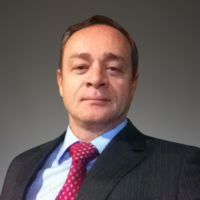
Federal Judge Marcus Livio Gomes
National Council of Justice of Brazil (CNJ)
Federal Judge Marcus Livio Gomes described Brazil's judicial efforts to combat deforestation and illegal mining. He highlighted the Sirenejud tool, which was developed in collaboration with UNDP. Sirenejud uses the National Justice Database (Datajud), a vast database with over 300 million cases, to provide judges and prosecutors with comprehensive environmental data. The platform enables precise geographical information and facilitates remote data exchange, which can aid in trial proceedings and decision-making. He also discussed recent developments and future plans for the tool.
Panel Discussion
The panel discussion addressed several questions about Sirenejud. These included its ability to monitor deforestation and promote transparency in judicial processes. Additionally, concerns were raised about the safety of judges, especially in regions where environmental activism is met with violence. Discussions also covered the role of technology, AI, and the importance of data collection in promoting environmental rule of law. Additionally, reflections were shared on the challenges and potential solutions in empowering judges to effectively enforce judgments, as well as the transition to paperless systems in the judiciary. Finally, the session emphasized the importance of collaboration and access to raw data for making informed decisions and protecting environmental defenders.
Panel Session 6: Access to Justice: Nature, Indigenous Peoples and Environmental Rule of Law
Affiliations and positions indicated are as of symposium date (31 May-1 June 2022).
The discussion on access to justice focused on environmental defenders and the challenges they face, such as strategic lawsuits against public participation (SLAPP suits) and violence. It also addressed the rights of nature and indigenous peoples (especially Māori). Presenters also spoke about rethinking environmental justice from multiple perspectives. Finally, the global recognition of the right to a healthy environment and the implications of this recognition were discussed.
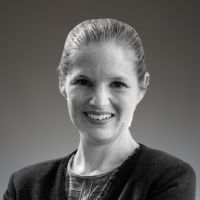
Co-Chair: Georgina Lloyd Rivera
Regional Coordinator (Asia and the Pacific) of Environmental Law and Governance, UNEP Bangkok

Co-Chair: Maryna Yanush
United Nations Economic Commission for Europe (UNECE), Geneva

Arnold Kreilhuber
Deputy Director, UNEP Law Division
Nairobi: Environmental Defenders
Mr. Arnold Kreilhuber discussed the crucial role of courts in protecting environmental defenders and ensuring their rights and safety. He emphasized the need for judges to have a better understanding of environmental issues and highlighted the challenges faced by defenders, including SLAPP suits and violence. Despite progress in environmental legislation over the past 50 years, threats to defenders persist. Therefore, the next decade is crucial for strengthening environmental rule of law. It is important to underscore the significance of judicial commitment to protecting defenders and promoting a sustainable future for all.

Justice Joe Williams
Supreme Court of New Zealand
Rights of Nature and Indigenous People
Justice Joe Williams spoke about the contrast between Western legal concepts and Māori perspectives on nature and relationships. He highlighted how Western law views nature as separate and subject to conquest, while Māori culture sees nature and humanity as interconnected. Justice Williams discussed the integration of Māori principles into New Zealand's environmental laws, for instance granting legal personality to natural entities like rivers and forests. This shift represents a move towards genuine environmental justice, by combining indigenous knowledge with Western legal frameworks.

Kristen Walker Painemilla
Chair, International Union for Conservation of Nature (IUCN) Commission on Environmental Economic and Social Policy (CEESP)
Reimagining Environmental Justice
Ms. Kristen Walker spoke of the need to rethink environmental justice from multiple perspectives, drawing on her experience as a non-lawyer, mother, and wife whose family has suffered as a result of environmental advocacy. Ms. Walker emphasized the significance of actively listening to communities, adopting problem-solving court models, imagining innovative solutions, and taking action to support environmental defenders. She challenged attendees to collaborate with stakeholders and communities to reimagine justice in their respective roles.
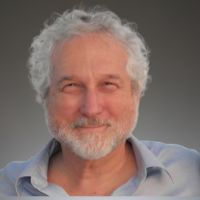
Daniel Magraw
Professor, Johns Hopkins School of Advanced International Studies
Substantive Access to Justice: The Right to a Healthy Environment
Professor Magraw highlighted the global recognition of the right to a healthy environment, which emphasized its substantive value and clarified the obligations of states. He discussed the impact of such recognition in mobilizing resources and facilitating programs, citing the successful elimination of lead from gasoline. He also underscored its importance in completing the concept of environmental justice, which includes equitable access and effective participation.
Panel Discussion
The panel discussion addressed several pressing issues, including the impact of renewable energy projects on indigenous communities, the need for environmental impact assessments, and the challenges of negotiating agreements with indigenous groups. Participants expressed concerns about the role of judges in protecting environmental defenders, establishing international liability for greenhouse gas emissions, and the potential interface between executive policy-making and jurisprudence. Discussions also took place regarding the role of institutions such as the Global Judicial Institute on the Environment in raising awareness and setting standards for environmental protection.
Panel Session 7: Global Panorama of Judicial Environmental Law Education
Affiliations and positions indicated are as of symposium date (31 May-1 June 2022).
The panel session underscored the importance of robust judicial education in environmental law, given the complexity of the issues involved. Innovative approaches are needed to address legal issues that intersect with scientific, socio-economic, and political aspects. Examples of judicial education programs in Africa, Indonesia, and the People's Republic of China were discussed.
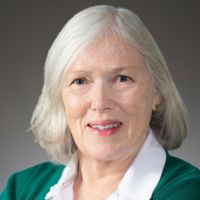
Co-Chair: Justice C. Adèle Kent
Chief Judicial Officer Emerita, National Judicial Institute, Canada
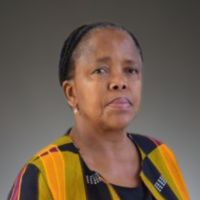
Co-Chair: Gomolemo Moshoeu
Director, Judicial Academy of South Africa (SAJEI)
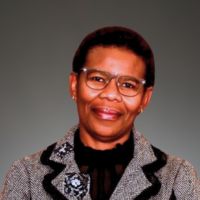
Justice Nambitha Dambuza
President, African Network of Judicial Academies and the Environment
Justice Nambitha Dambuza emphasized the importance of the African Judicial Education Network on Environmental Law in enhancing judges' capacity to evaluate environmental cases. She highlighted the devastating impact of climate change and environmental degradation on communities, underscoring the need for judges to understand relevant science and social contexts.

Robert Wabunoha
UNEP Regional Environment Governance Coordinator, Nairobi
Mr. Robert Wabunoha focused on the development of green judicial training in Africa and underscored the integration of environmental law with socio-economic and political aspects. He stressed the necessity of continuous skill development for judges to interpret environmental law effectively. Modern-day challenges require judges to grasp complex concepts, pushing them to consider other subject matters. Thus, there is a growing need for innovative approaches to integrate environmental education into judiciaries. Additionally, he advocated for mentorship of young lawyers to ensure sustainable development in judicial expertise.
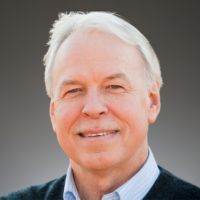
Scott Fulton
President Emeritus and International Envoy, Environmental Law Institute—Washington D.C
Mr. Scott Fulton reflected on the legacy of the 1972 Stockholm Conference, emphasizing the vital role of courts in environmental law. He traced the evolution of judicial education programs initiated by the Environmental Law Institute and the United Nations Environment Programme, highlighting the pivotal role of judges in addressing environmental challenges. Mr. Fulton spoke about the Climate Judiciary Project, which focuses on educating US judges on climate science, and discussed plans for an internationalized curriculum. He underscored the importance of empowering judges to effectively address climate change issues.
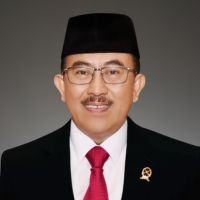
Justice Bambang Hery Mulyono
Supreme Court of Indonesia; Head of the Judicial Technical Education and Training Center
Justice Bambang Hery Mulyono discussed Indonesia's judicial education, highlighting collaborations with Australia on environmental law. The training programs aim to certify environmental judges and cover various aspects, such as environmental science, ethics, protection and management, and law enforcement, while maintaining integrity. The post-training evaluation assesses competence indicators and knowledge improvement. The three-month program includes self-study, online and in-person classes, and interaction with global experts. Advanced programs for Association of Southeast Asian Nations judges, with a focus on climate change, demonstrate Indonesia's commitment to environmental justice. With more than a thousand alumni judges, Justice Mulyono remains optimistic about the training center's vision. He emphasized the role of environmental judges in finding solutions.

Briony Eales
Team Leader (Consultant), Environment and Climate Change Judicial Program, ADB
Ms. Eales spoke about modernizing judicial education to include 21st-century solutions. She emphasized the importance of judges considering diverse perspectives and principles, especially regarding climate and Earth justice. Ms. Eales also discussed the Asian Development Bank's efforts to support judiciaries, such as establishing the Asian Judges Network on Environment and providing initiatives for judicial education on climate change and biodiversity. ADB's innovative programs aim to improve judicial training and address pressing legal issues. Ms. Eales also underscored the importance of ongoing dialogue with judges to effectively adapt legal education in a changing world.

Dimitri de Boer
Chief Representative for China, ClientEarth
During the discussion, Mr. Dimitri de Boer highlighted the People's Republic of China's commitment to environmental protection since 2013. Specifically, he discussed the experience of educating environmental judges and ClientEarth's role in training over 2,000 environmental judges and collaborating with prosecutors to enhance environmental law enforcement. Notable cases, such as the Bitcoin dispute and the Green Peacock case, demonstrate the judiciary's proactive stance on environmental issues. Challenges persist, including the complexity of cases involving government priorities. Nevertheless, there is a clear trend toward greater judicial independence and technological advances in evidence collection. ClientEarth's expanding collaborations and initiatives aim to address these challenges and foster international exchanges among judges.
Panel Discussion
In the panel discussion, Mr. Katak Malla pointed out the challenge of maintaining neutrality, legitimacy, and justice in environmental law, especially in the context of power asymmetries and institutional issues such as racism and patriarchy. Justice Syed Mansoor Ali Shah raised several questions about how to gauge the effectiveness of judges in the field after training (e.g., promulgating better decisions, improving enforcement of decisions), the training of Supreme Court and High Court judges, the composition of the faculty, and whether a scorecard is used for the training. Justice Antonio Benjamin expressed concerns about providing judicial education in countries without specialized environmental courts. In such cases, a dilemma may arise as to whether to train all judges, including those who may never face an environmental case. This could involve training tens of thousands of judges.
Concluding Session of the Symposium
Affiliations and positions indicated are as of symposium date (31 May-1 June 2022).
In the concluding panel session, speakers recognized the growing importance of courts in addressing environmental issues and the need for judicial intervention to ensure effective enforcement of environmental laws. They emphasized the role of the judiciary in balancing conservation needs with economic interests, in particular, the conservation of global biodiversity and the equitable distribution of benefits.
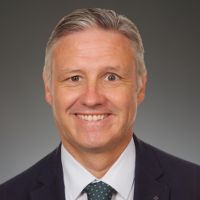
Co-Chair: Judge José Igreja Matos
Chief Judicial Officer Emerita, National Judicial Institute, Canada

Co-Chair: Christina Voigt
Professor, University of Oslo School of Law; Chair, IUCN World Commission on Environmental Law
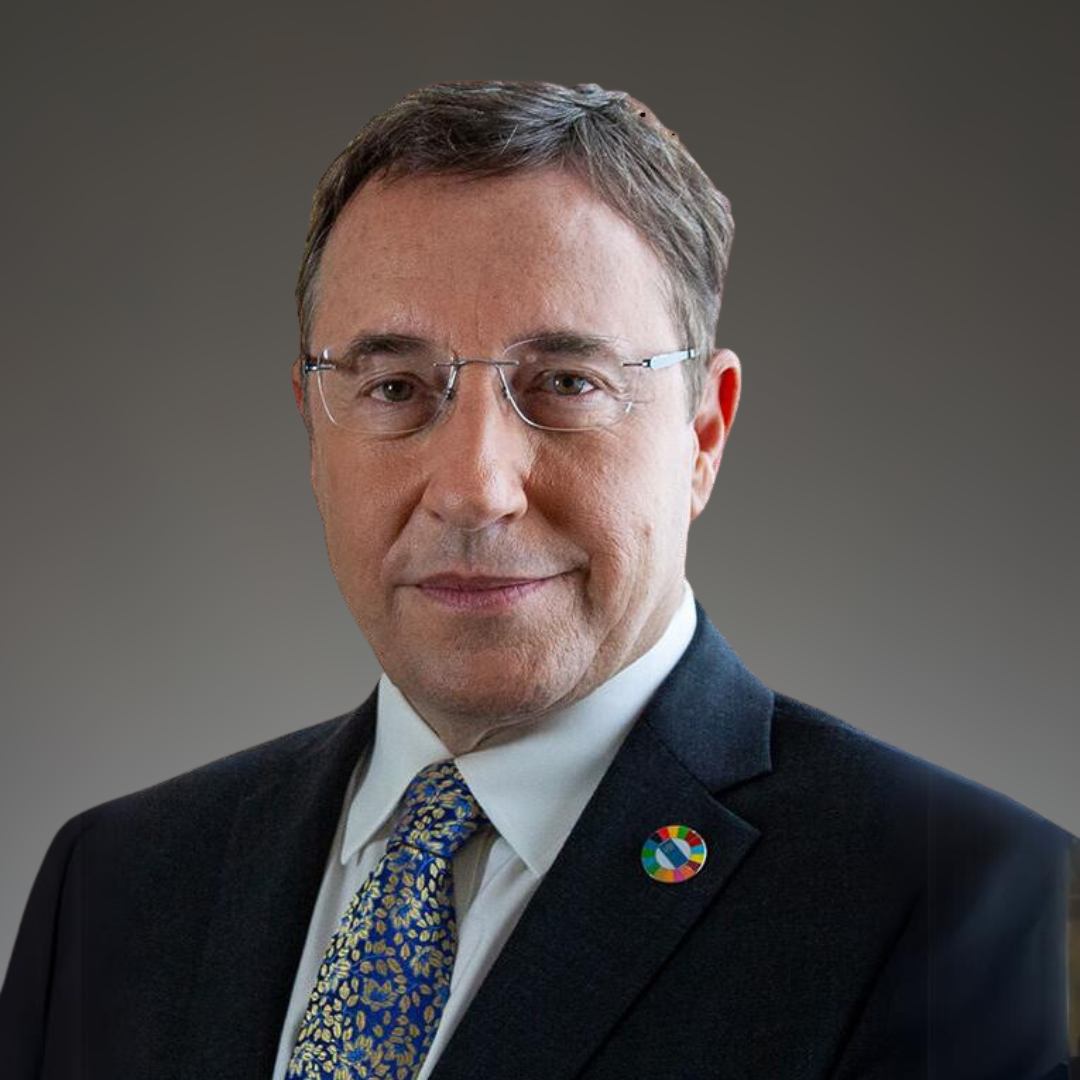
Achim Streiner Administrator, United Nations Development Programme (UNDP)
Mr. Achim Steiner expressed gratitude to Justice Benjamin for his influence on promoting the environmental rule of law. Reflecting on the 1972 Stockholm Conference, he emphasized the importance of celebrating its legacy, which led to the establishment of numerous environmental agreements and institutions. He highlighted the evolution of environmental jurisprudence and stressed the need for a broader approach that integrates sustainable development goals. Mr. Steiner also highlighted the growing importance of courts in tackling environmental issues and called for the enactment of laws to address modern complexities.
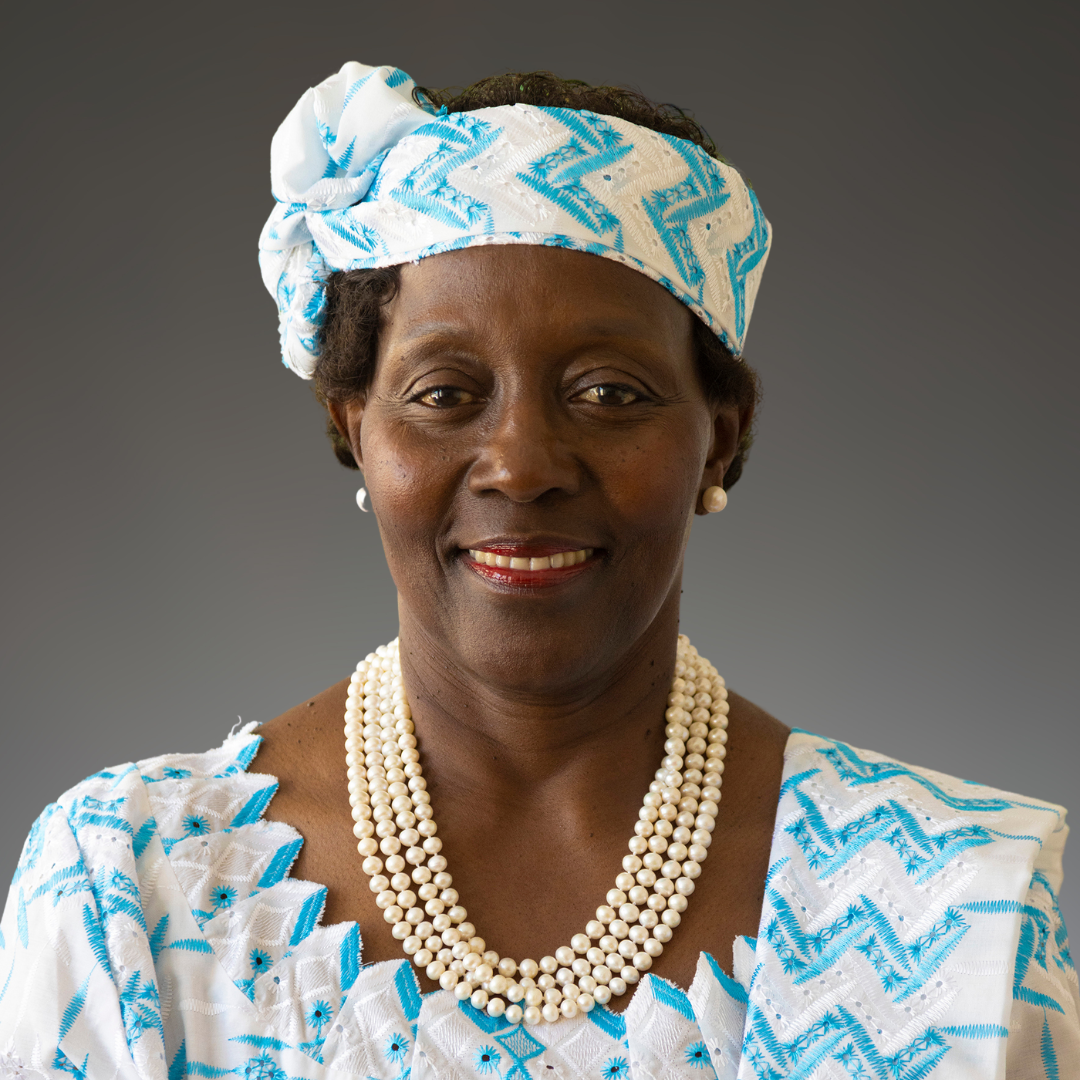
Elizabeth Mrema
Executive Secretary of the Convention on Biological Diversity (CBD)
Ms. Elizabeth Mrema focused on the pivotal role of judges in advancing environmental justice, tracing back to United Nations Environment Programme’s engagement with judges in 1996. Despite initial skepticism, these interactions catalyzed the development of environmental judicial activism and specialized courts globally. She stressed the ongoing environmental challenges and urged reflection on current efforts, emphasizing the need for judicial intervention to effectively enforce environmental laws. Ms. Mrema highlighted the importance of judicial independence and education in environmental law. She stressed the judiciary's role in balancing conservation needs with economic interests and called upon judges to continue supporting the implementation of international environmental treaties. Ms. Mrema stressed the vital contribution of judges to global biodiversity conservation and equitable distribution of benefits.
Symposium Synthesis Remarks
Affiliations and positions indicated are as of symposium date (31 May-1 June 2022).
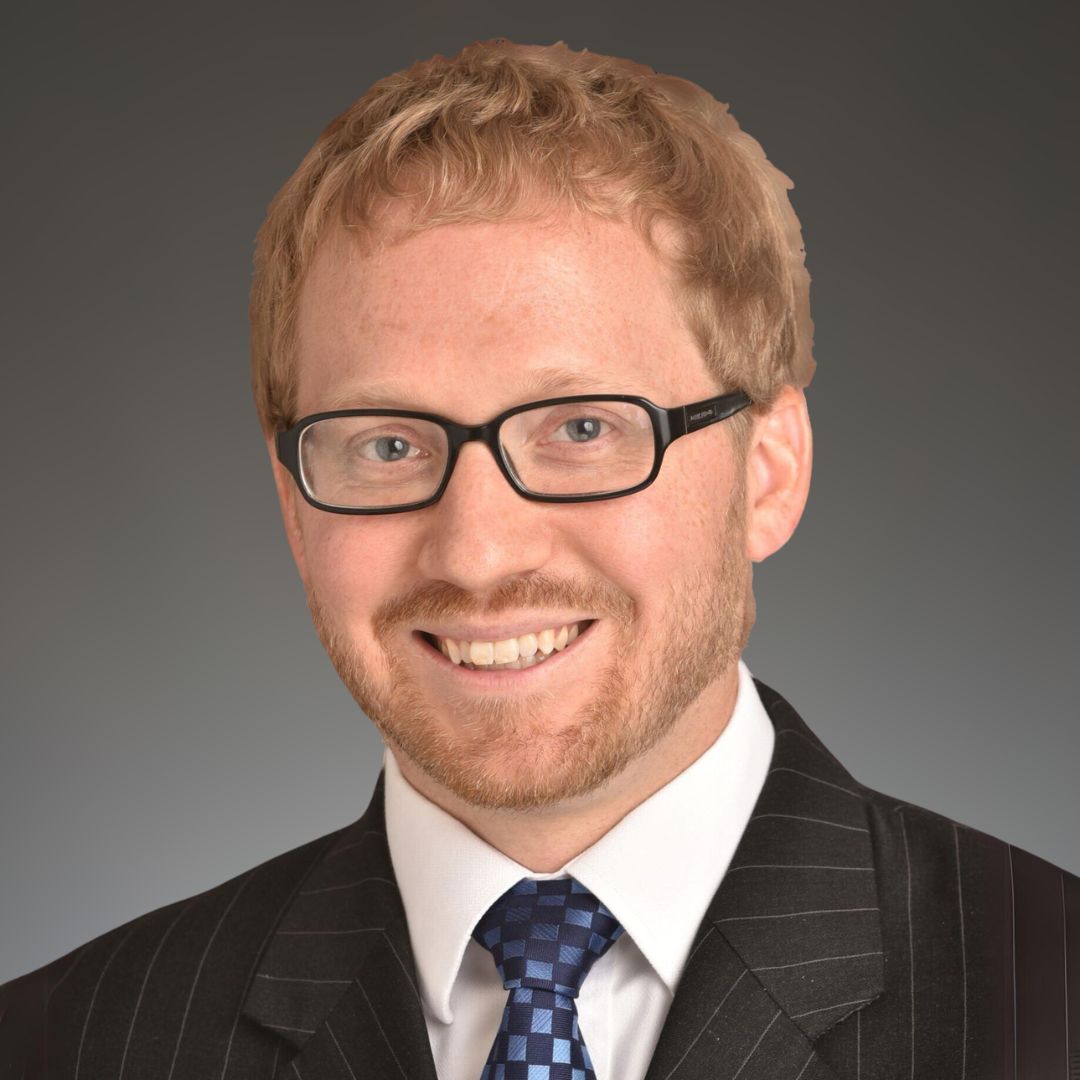
Nicholas Bryner
Professor, Louisiana State University School of Law
Professor Bryner expressed gratitude for the attendees' participation in the historic gathering in Stockholm. He also acknowledged the diverse representation from 24 countries and six continents at the symposium. Professor Bryner highlighted the successes in protecting environmental rights, while acknowledging challenges such as threats to judicial independence and the need for better compliance with environmental law. He emphasized the judiciary's crucial role in achieving justice, equity, and the rule of law, and expressed gratitude for judges' ongoing efforts worldwide.
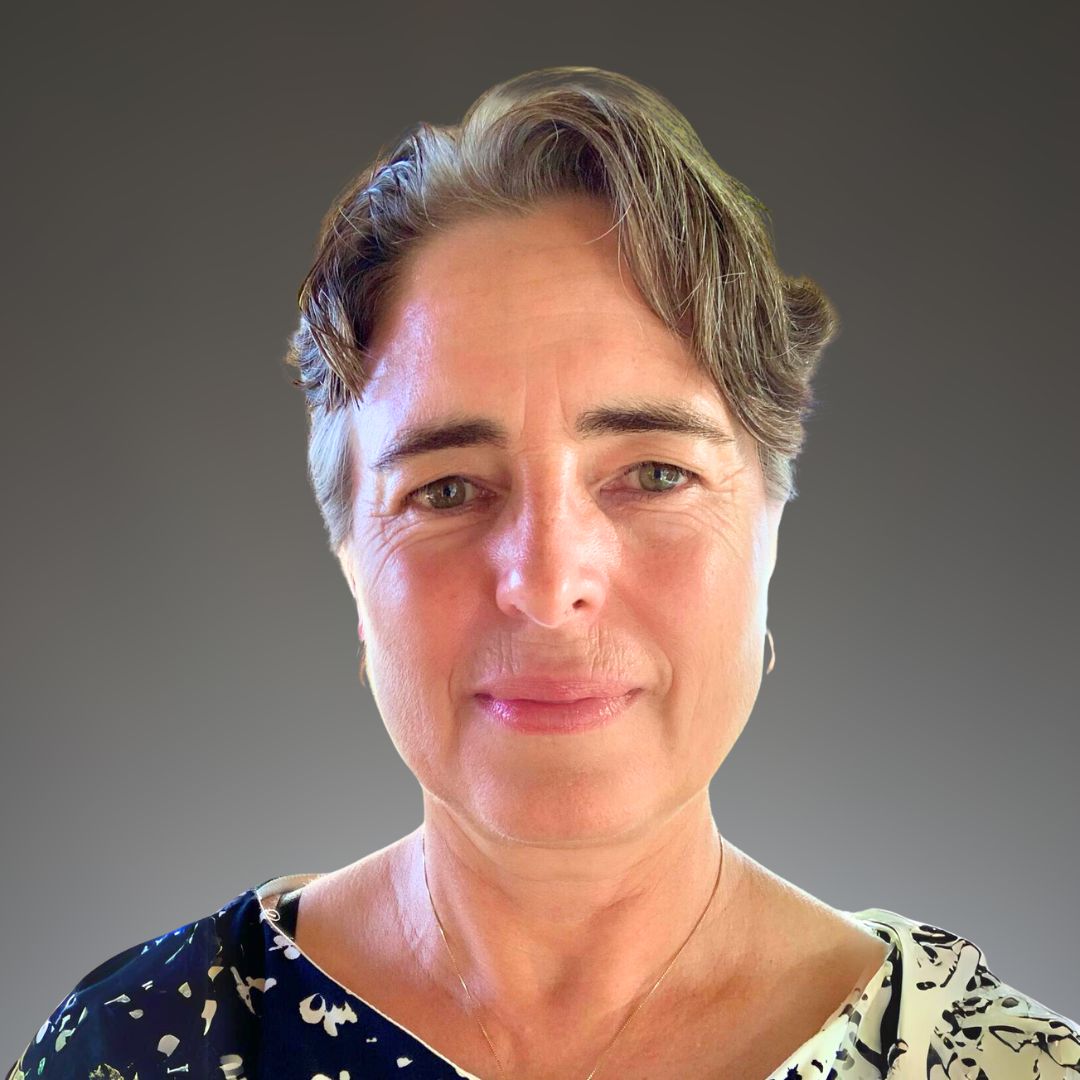
Denise Antolini
Professor, William S. Richardson School of Law, University of Hawai’i
Professor Antolini continued the discussion of successes and challenges in safeguarding environmental rights. In addition to the successes discussed by Professor Bryner, she noted the ability of organizations such as the Global Judicial Institute on the Environment to facilitate successful knowledge sharing efforts, the use of technology, the development and evolution of legal principles through concerted efforts, and impactful judicial decisions. However, she also identified challenges such as difficulties in implementation, judicial turnover, maintaining judicial independence while engaging civil society, resource constraints, and the need to accelerate the pace of legal processes to address contemporary crises.
Closing Keynote Addresses
Affiliations and positions indicated are as of symposium date (31 May-1 June 2022).
The closing keynotes focused on the intersection of law and science, among other disciplines, in the crises facing our planet today. Presentations introduced the International Association of Judges (IAJ) and the International Union for Conservation of Nature (IUCN). The IAJ is an international organization dedicated to the key issues of civilization, the rule of law, human dignity, and the independence of the judiciary. IUCN's mission is to help its members better manage the planet's natural resources. Together, these organizations emphasize the need for an interdisciplinary approach to today's challenges, particularly the triple planetary crisis of pollution, biodiversity loss, and climate change.
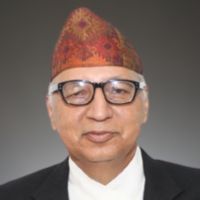
Co-Chair: Justice Ananda Mohan Bhattarai
Supreme Court of Nepal

Co-Chair: Justice Nambitha Dambuza
President, African Network of Judicial Academies and the Environment

Bruno Oberle
IUCN Director-General
Mr. Bruno Oberle acknowledged the complexity of the International Union for Conservation of Nature (IUCN). The IUCN's mission is to help its members better manage the planet's natural resources, as the future depends on humanity's ability to address the interrelated crises of global biodiversity loss and climate change. Mr. Oberle underscored the urgency of addressing the loss of biodiversity and climate change caused by human activities and stressed the need for a shift towards sustainable resource management, such as the adoption of a circular economy. Collaboration between science and law is essential for effective conservation, with IUCN serving as a platform for this interdisciplinary dialogue. He also stressed the importance of effective implementation of environmental laws, recognizing the role of judges in ensuring enforcement and upholding international commitments.

Judge José Igreja Matos
President, International Association of Judges (IAJ)
Judge José Igreja Matos introduced the International Association of Judges (IAJ), an international organization dedicated to the key issues of civilization, rule of law, human dignity, judicial independence and other values that unite judges. He highlighted the global nature of judges' concerns, including environmental issues, and the challenges posed by external pressures such as powerful lobbyists and social media manipulation. Judge Matos emphasized the importance of judges' commitment to the United Nations-defined goals for environmental protection, and advocated strict merit-based criteria for judicial appointments and international oversight to ensure judicial independence. He concluded with a call for courage, unity and hope in facing the challenges ahead, and expressed optimism for the cooperation between the IAJ and the Global Judicial Institute on the Environment.
Formal Closing Remarks and Partner Recognition
Affiliations and positions indicated are as of symposium date (31 May-1 June 2022).
The formal closing remarks focused on both achievements and ongoing challenges in addressing the Sustainable Development Goals (SDGs). Speakers highlighted inspiring progress stories while emphasizing the need for accelerated action and global collaboration. The importance of environmental education, the role of international organizations, and the potential for systemic change were discussed.

Justice Sapana Pradhan Malla
Supreme Court of Nepal, and Secretary-General, GJIE
Justice Sapana Pradhan Malla thanked all the people and organizations that made the symposium possible, including the Asian Development Bank (ADB), the United Nations Environment Programme (UNEP), and Earthday.org. Justice Malla commended the meeting for sparking meaningful discussions on substantive issues as well as on successes and ongoing challenges. Justice Malla also recognized organizers Denise Antolini, Nicholas Bryner, Inger Anderson, Thomas Clark, Christina Pak, Maria Cecilia Sicangco, Christina Voigt, Nicholas Robinson, David Boyd, Justice Luc Lavrysen, Michael Strauss, Elizabeth Mrema, and Justice Antonio Herman Benjamin for their leadership and contributions to the success of the event, including the launch of a portal to enhance connectivity and empowerment.

Christina Pak
Principal Counsel, ADB
Christina Pak reflected on the discussions over the past two days. Inspiring stories of progress were celebrated, while calls to accelerate progress towards the Sustainable Development Goals (SDGs) were also heard. Ms. Pak expressed hope that the symposium had provided a new opportunity for the global justice community to strengthen its response to the triple planetary crisis. She reiterated ADB's commitment to supporting justice with its partners. Ms. Pak thanked the global judiciary for its work and paid tribute to the Asia-Pacific judiciary, especially the judges present at the symposium.

Kathleen Rogers
President, Earth Day
Kathleen Rogers, a former law clerk turned environmentalist, highlighted her journey from law to advocacy. She stressed the importance of environmental education and civics, noting their absence in global curricula. She expressed concern about disillusionment with multilateral organizations and governments, which she attributed to compromise and lack of progress. Calling for action, she emphasized the need to disrupt the status quo and urged the legal community to stand firm against the desecration of the planet.
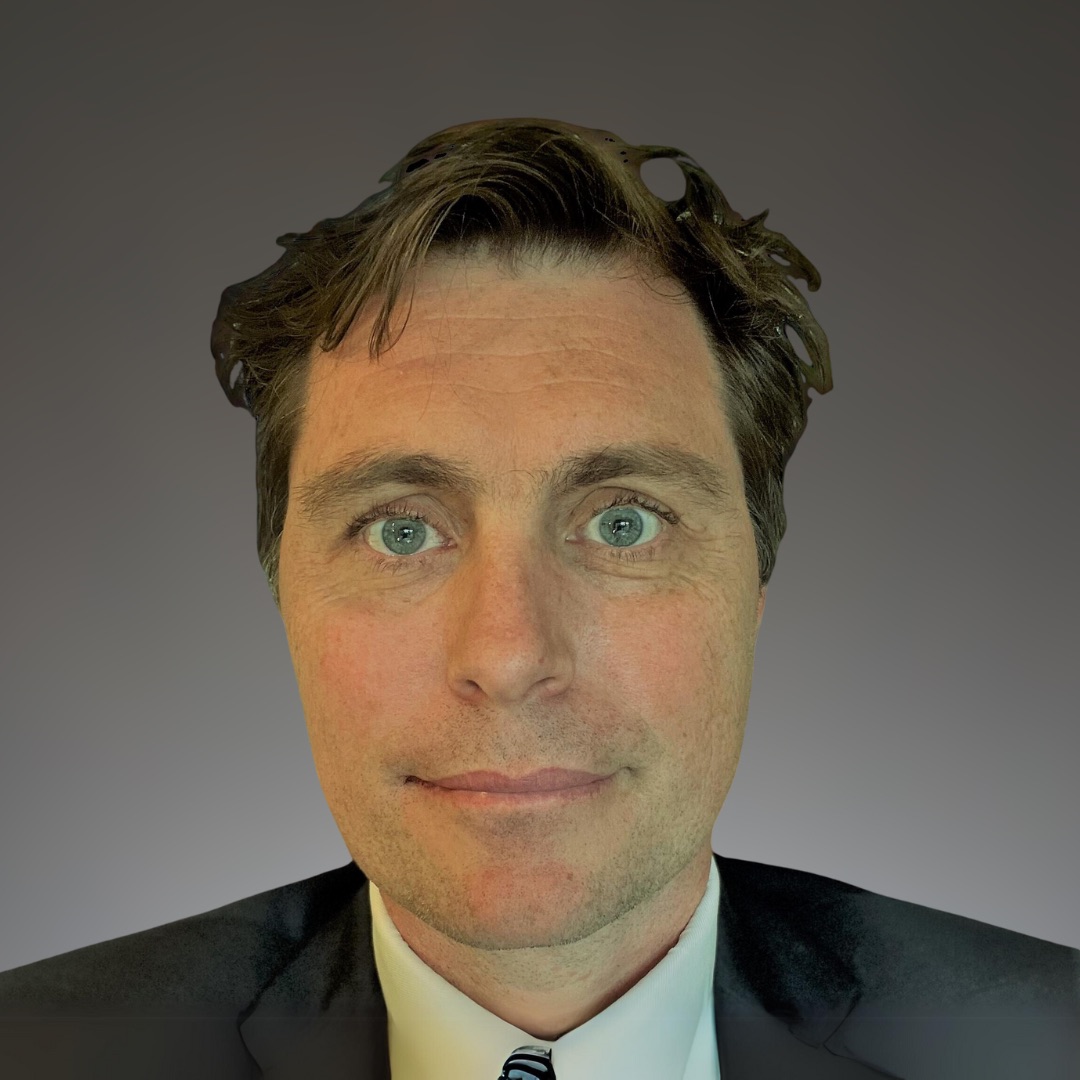
Andrew Raine
UNEP Head of International Environmental Law Unit, Nairobi
Andrew Raine thanked Judge Benjamin and ADB for organizing the symposium and highlighted the importance of their work in environmental law. He emphasized the need to "create" more legal leaders to address the planetary crisis, for example through the platforms of the United Nations, ADB, and IAJ, and reaffirmed UNEP's commitment to cooperate in this regard. Finally, despite the challenges, Mr. Raine expressed optimism about the potential for systemic change and praised the participants' commitment to accelerating environmental rule of law.
